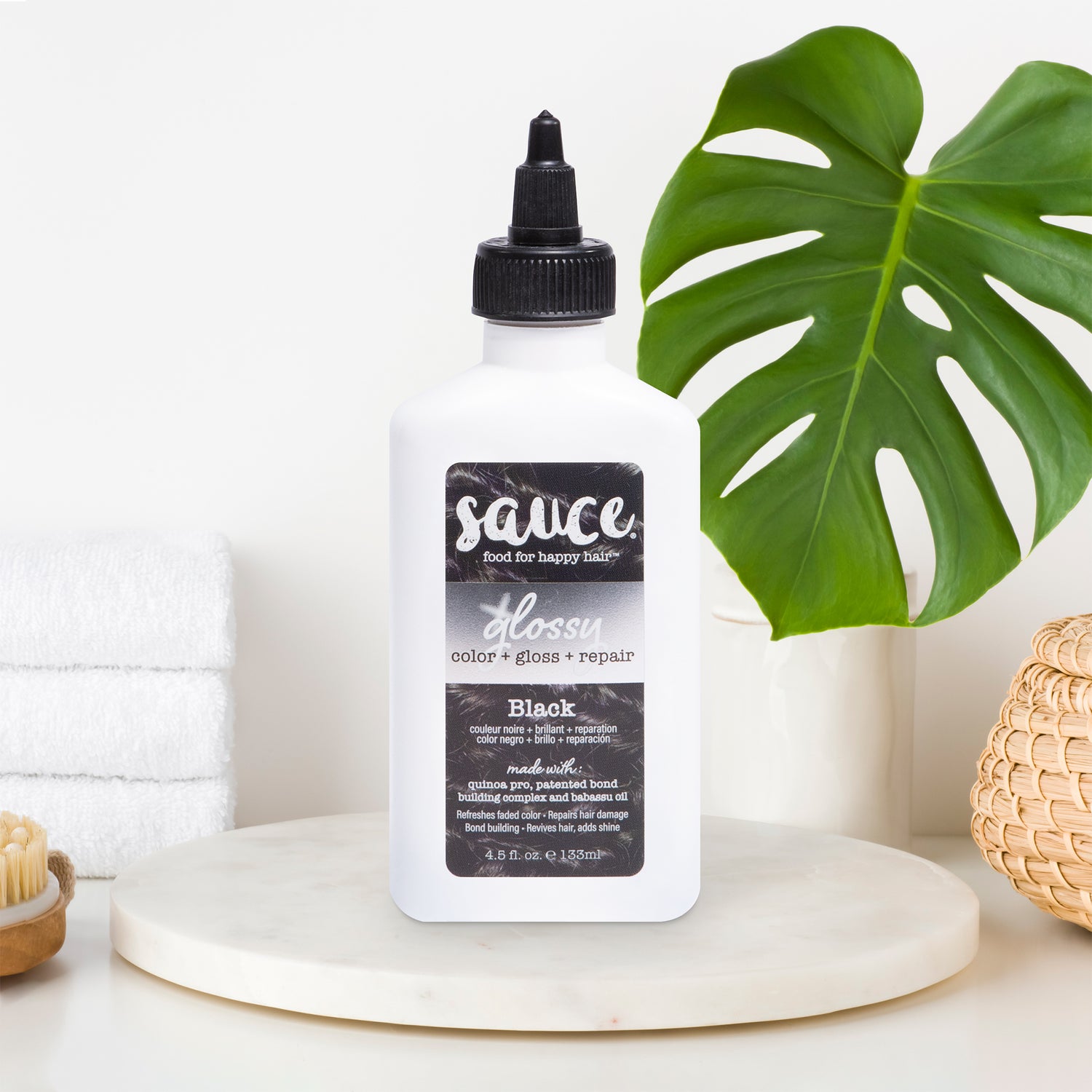The Truth About Parabens in Haircare — and Why They Might Be to Blame for Some of Your Hair and Scalp Issues
Parabens. Now there’s a word that you don’t want to say too loudly in a crowded room. The music might come to a screeching halt, silence would fill the air, and everyone would look at you in complete horror. Okay, so maybe we’re being a tad dramatic, but parabens do tend to illicit a strong—and usually negative—reaction from people. Why is that? For starters, pick up any random skin or haircare product in your local drugstore, and chances are, you’ll see the words “paraben-free” called out somewhere on the packaging. While parabens are not actually banned in the US (more on that later), most beauty brands have opted not to use them, and they make sure to tell you that. So, naturally, most of us just assume they must be really bad and avoid them at all cost—without really knowing why. Here, we break down the science behind these controversial ingredients. Find out what they really are, and why they’re so feared.
What are parabens?
Simply put, parabens are a type of preservative used in cosmetic products, says Sauce Beauty Founder Andy Rah. That means they help lengthen the shelf-life of your product (and protect your skin) by preventing icky mold or bacteria growth in the formula. Their use in skin, hair, and body products dates back to the 1950s. You can usually spot them on labels because the word paraben appears in part of their name (butylparaben, methylparaben, ethylparaben, and propylparaben are the most commonly used parabens, according to the FDA). It’s common for a product to include a combination of different parabens, as well as other types of preservatives that work together to prevent the growth of microorganisms.
So, what’s the problem with them?
Get comfy because there’s a lot to unpack here. One claim is that parabens end up inside our bodies. In 2004, a small study in the Journal of Applied Toxicology found that parabens were present in breast cancer tumors. Concerning, yes; however, it’s important to note that since then, there’s hasn’t been any evidence linking them directly to breast cancer (of any other type, for that matter). Experts, including the American Cancer Society, feel their presence alone is not enough to make the leap in saying parabens cause breast cancer.
Another concern is that parabens are potential endocrine disruptors, based on animal studies. An endocrine disruptor is something that can interfere with and mimic your natural hormones such as estrogen, causing all sorts of issues from reproductive problems to hormone-driven cancers. Yet, no human trials have been able to establish this link. Most experts believe more research is needed before any conclusions can be made.
Parabens are also blamed for hair and scalp issues, says Rah. For some people, parabens can trigger an allergic reaction—an itchy rash. In one study, researchers found that parabens accounted for 1.4 percent of all contact skin reactions.
Despite these studies, the FDA hasn’t banned parabens, stating there isn’t enough conclusive evidence to prove they are bad for human health. But because consumers are leery of these preservatives, many beauty companies, including Sauce Beauty, have decided to play it safe and voluntarily remove parabens from their formulas. “There are other known, safe preservative systems available, so we make use of those,” says Rah.
But do I even need preservatives in my products?
Yeah, you do. Rah asks, “Would you put your food in the hot, humid shower, and then leave it there for weeks or months at a time without preservatives?” We didn’t think so. “Any products (hair, skin, or face) left in your shower for any duration has the potential to grow microbial organisms,” he says. It’s not just gross, it can be potentially harmful. Do you really want to spread bacteria on your skin, scalp, and hair? Preservatives help prevent that.
What are some of the preservatives Sauce Beauty uses instead?
Now that we’ve established that preservatives are non-negotiable, let’s talk alternatives. Sauce Beauty uses several different preservative systems. And while most of them have long, chemical-sounding names, they’re considered completely safe. Here’s a sampling:
- Phenoxyethanol: an antibacterial ingredient that also conditions hair.
- Ethylhexylglycerin: a naturally-derived preservative from glycerin, a moisturizing ingredient.
- Disodium EDTA: a salt-based preservative with an added bonus for hair. It helps prevent heavy metals (copper, magnesium, zinc) in your water from staying on your hair and dulling shine.
- Benzoic acid: a food-grade preservative that’s also used in cosmetics.
For more information about Sauce Beauty products, and to check out more of our good-for-your-hair ingredients, shop here.

